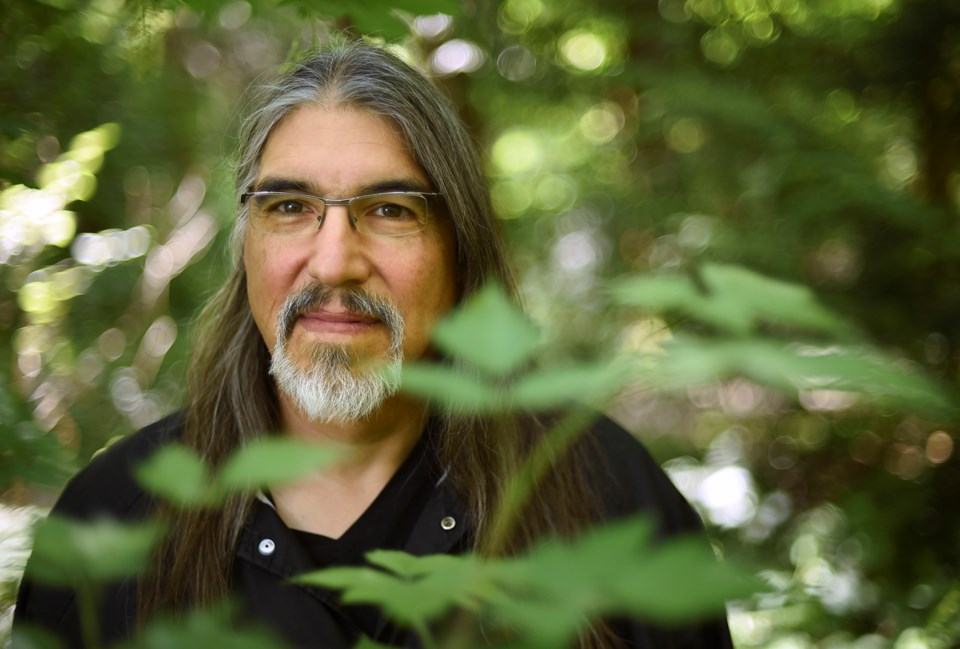The Truth and Reconciliation Commission has opened a lot of Canadiansâ eyes to the realities of historical and contemporary life for indigenous Canadians.
Yet even before that seminal â and hopefully nation-altering â process and report Canadians were deeply impacted by a primary value of this landâs original inhabitants.
As you read this, Rev. Ray Aldred is probably unpacking boxes, making the move from Calgary to Vancouver, where heâll be the director of the indigenous studies program at the Â鶹´«Ã½Ó³»School of Theology (VST). Aldred, a status Cree from northern Alberta and a United Church minister, thinks something uniquely Canadian â which most of us probably intuitively know but do not properly attribute â comes from our indigenous fellow Canadians.
âI think in Canada people intuitively want to believe that the land is special,â Aldred told me by phone while preparing to put his Calgary house on the market. âIn the U.S., theyâre patriotic about their nation-state, about being Americans. But in Canada, we are patriotic about the land. I think thatâs a First Nations value.â
If non-aboriginal Canadians have a special, perhaps mystical, connection with the land, Aldred says, that may be an instinctual response not only to the natural majesty our folk songs extoll, but something we inherited from the earlier residents.
The land, to indigenous people, says Aldred, is inseparable from spirituality. Land represents creation â it is the embodiment of the creatorâs work and is therefore sacred in its own right.
Separating religion or spirituality from the rest of life is a European invention. For indigenous North Americans and many others worldwide, spirituality and our relationship with creation is inseparable from every other aspect of being.
âIt permeates all of life,â he says.
The treaties between Europeans and indigenous peoples have become a chapter in the longer creation story of First Nations, Aldred says, but they are also part of the creation story of Canadians who came later.
âAt the heart of indigenous spirituality, particularly I think among many of the Plains people, is the idea that you know your creation story. It tells you how you are related to the earth.â
For Canadians whose ancestors came from elsewhere, these treaties should also have resonance, he argues.
âIf the newcomers embrace those, thatâs their creation story, thatâs what tells them how theyâre related to this land,â he says. âItâs controversial what I say, but in one sense, newcomers ought to embrace their indigenous identity. Through the treaties, they have the right to be here.
Theyâre treaty people too. Thatâs their creation story.â
Aldred wishes European-descended Canadians would stop trying to re-create Europe here and âjust embrace their religious indigenous identity,â which he says means simply that âtheyâre related to this land and itâs a good land and they should learn to live on it in a good way.â
Born and raised near Grande Prairie, Alta., Aldred was baptized as an infant in the United Church but rejected it as an adolescent. He loved the outdoors and didnât understand the value of going inside a building to fulfill a ritual.
âIn the same way, I didnât like school because it took you away from your family, it took you away from your home, the land,â he says. âIt took you away from everything that you loved. I just couldnât make the connection why this was important.â
Later in his teen years, he became an addict and an alcoholic.
âWhen I was 19, I said, âGod, if you help me quit using, Iâll do anything you want me to.â And I never used again so I guess God kept his part and Iâm trying to keep my part,â he says.
He went to Bible college for an undergrad and then graduate studies. He assumed leadership roles in churches in Saskatchewan and began teaching, most recently at Ambrose Seminary and University in Calgary. Heâs preparing to teach a course at VST in indigenous theology of land.
During Aldredâs formative years as a theologian and clergyperson, Canadian churches, especially his United Church, evolved significantly in attitudes toward contemporary and past treatment of indigenous Canadians. Aldred was part of a movement to integrate indigenous traditions into Christian practice. In the past, many thought the two were irreconcilable â indeed, it was precisely this idea that led to most of the atrocities detailed in the TRC report.
The changes Aldred and others promoted were not doctrinal, but more about simple practical approaches to religiosity.
âJust sitting in a circle instead of in rows,â says Aldred. Using drums in the service, smudging (âpraying with smoke,â he calls it) and, ultimately, confronting and seeking reconciliation for what some Christians had done to indigenous people and allowing a place for the victims to express themselves.
With such fraught history, it is hardly surprising that some have suspicions about Christian churches. Perhaps more surprising is the number who have found a comfortable synthesis between indigenous identity and Christianity.
âAt first, at least in early modernity, the Christian story was that it had to replace everything,â he says. âBut indigenous spirituality is more that Christianity had a place in there that somehow fit in to help on the journey.â
At 56, Aldred says he has seen progress not only among non-indigenous Canadians but in his own family.
âAs a kid, I didnât want to be First Nations,â he says. âI just wanted to fit in, like everybody else. You denigrated your own identity. Lots of us did that.
âBut my granddaughter, she says to me, âIâm a First Nation,ââ Aldred says, laughing. âAnd I think thatâs a good thing.â
@Pat604Johnson



